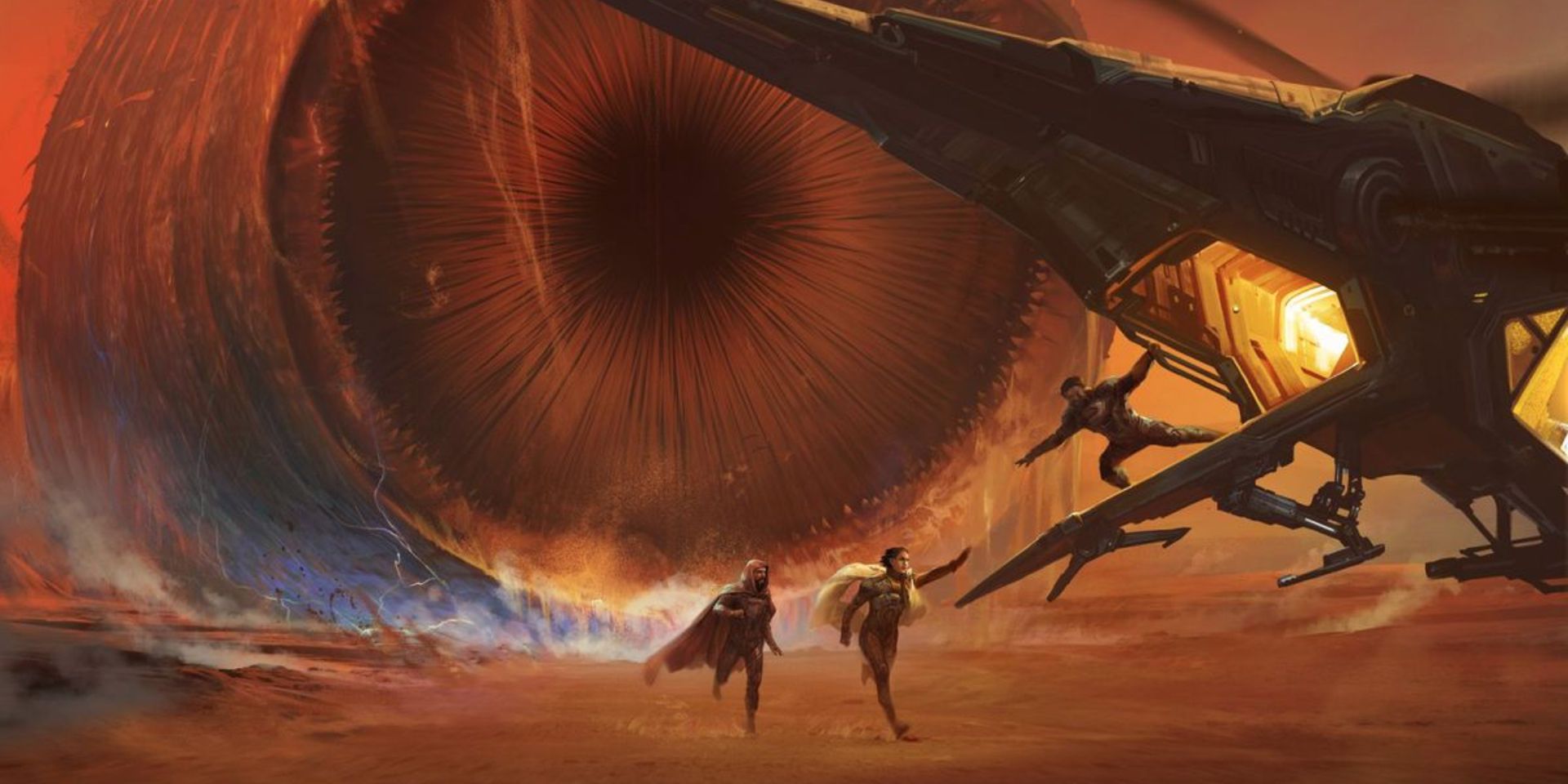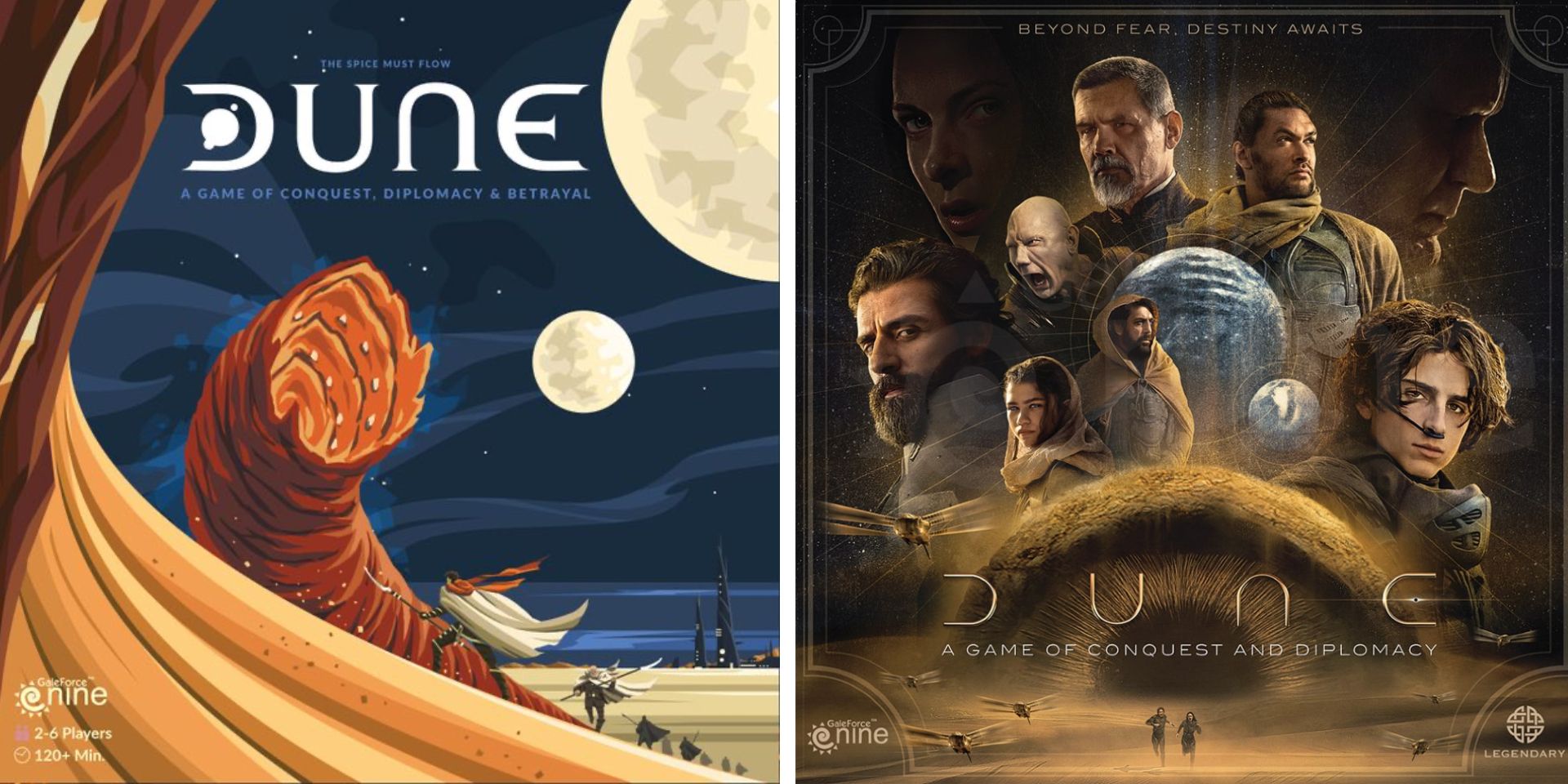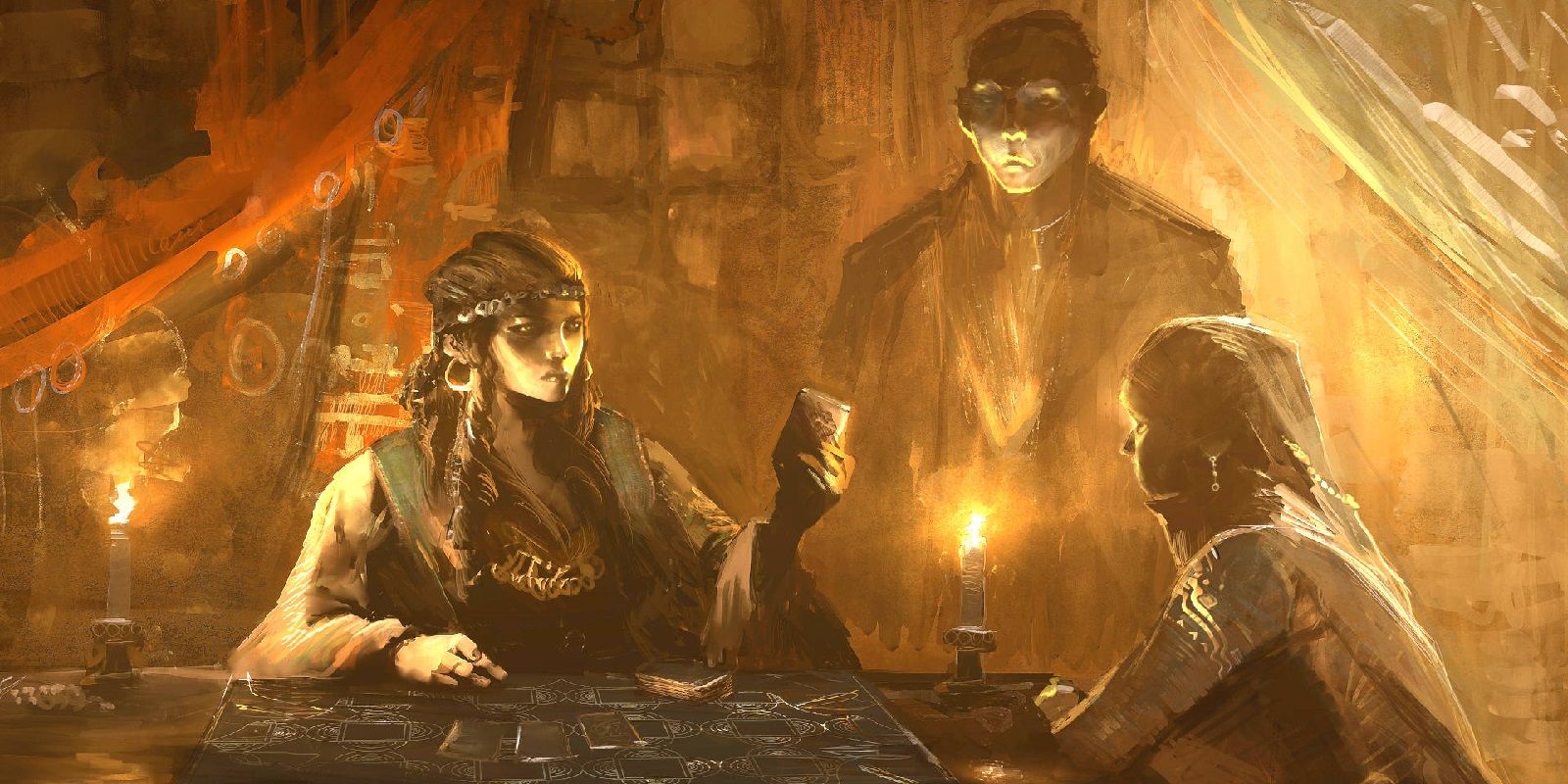The financial success and critical acclaim of the Dune 2021 film adaptation has stirred up fresh interest in the original Dune novels by Frank Herbert, earlier screen adaptations, and even the attempts to translate the story and setting of Dune into tabletop and video games. The following Dune game adaptations have done a particularly good job of depicting the spice-harvesting, neo-feudal politics, desert survival narratives, shadowy conspiracies, and giant sand-worms that are so characteristic to the Dune universe fantasy and its dynasties.
The original Dune novel, written by novelist Frank Herbert and published in 1965, swiftly acquired a sizable fanbase and left a huge impact on the aesthetics and themes of science fiction and fantasy franchises ranging from Star Wars to Warhammer 40k. One big reason for the Dune franchise's enduring acclaim is how it manages to blend several interesting stories together into a cohesive narrative.
From one point of view, the original Dune novel is a work of ecological science fiction, focused on the struggles of a nomadic culture trying to survive the harsh conditions and lifeforms of their desert planet while secretly enacting a terraforming project beneath the notice of their colonial overlords. From another point of view, Dune is a historical fantasy story with the trappings of sci-fi (like Dune's iconic sandworms), set in an neo-feudal galaxy ruled over by noble families, interstellar guilds, and quasi-religious orders (the setting's universal ban on "Thinking Machines," coupled with ubiquitous deflector shield technology that makes melee combat viable again, enforces the deliberately archaic feel of this sci-fi setting). The fictional substance called Spice, used to extend life and optimize interstellar travel, makes Dune an allegorical sci-fi story about how societies dependent on a single resource grow both distorted and fragile. Finally, the Bene Gesserit society, and their obsession with creating superhuman oracles through selective breeding and genetic tinkering, turns Dune into a parable about the dangers of investing hope into a "chosen one" or prophesied hero.
In short, Dune is a sci-fi franchise with a lot of layers, making it very challenging to create adaptations that perfectly capture its essence (one reason why Denis Villeneuve chose to split his film adaptation of Dune into two parts). The Dune games based on the books and movies below – some physical, some digital – stand out by virtue of how they capture the two most important pillars of Frank Herbert's genre-changing novel – the challenges of surviving and extracting resources from a desert world, and the games of war, conspiracy, assassination, and betrayal waged between aristocratic powers.
Dune: A Game Of Conquest And Diplomacy
Dune: A Game Of Conquest And Diplomacy is a board game with an interesting publication history, ultimately culmination in a 2021 reprint based on the latest Dune movie. The first edition of the Dune Board Game was published by Avalon Hill in 1979, adapting the setting and general premise of Frank Herbert's books to the format of the complex strategy games they were most famed for. The second edition of the Dune Board Game was released in 1984 as a tie-in to David Lynch's film adaptation, and came with two expansions that gave players new leader tokens, treachery cards, and gameplay modes. Afterwards, the Dune board game remained out-of-print for over 20 years, becoming a valuable collector's items among aficionados of strategy gaming. Then, as Denis Villeneuve's Dune film project got off the ground, the board game publishing company Gale Force 9 reprinted the original Dune board game with new artwork in 2019, followed by a second printing in 2021 with streamlined rules and visual assets taken from the movie.
The premise and rules of Dune: A Game Of Conquest And Diplomacy have essentially stayed the same through its various editions. The players of the game each take control of different political factions from Dune, like House Atreides, House Harkonnen, the Fremen, and the Spacing Guild, etc., each of them trying to claim different territories on the desert world of Arrakis and harvest the valuable spice found in the desert wastes. With the wealth gained through productive turns, players acquire military units, treachery cards, leader tokens, and other assets, then spend those assets in order to acquire more territory and capture key strongholds.
In practice, Dune: A Game Of Conquest And Diplomacy turns out to be far more than just a Dune-themed board game skin. It's a game of politics, negotiation, bluffing, and opportunistic backstabbing, a dynamic fostered by the unique abilities and win conditions each player faction has. Players of the Fremen Faction, for instance, have the ability to move tokens around the map via sandworm and win the game if none of the other factions achieve dominance on the game map. The Bene Gesserit faction, in contrast, has the ability to 'force' players to play or not play certain cards from their hand with their "Voice" abilities; furthermore, they win the game by writing down the name of another player faction at the start of the game, then making sure that faction comes out on top near the end. If one's only Dune gaming experience has been watching Timothee Chalamet's Xbox modding channel, the depth and intrigue of Dune: A Game Of Conquest And Diplomacy should be welcome indeed.
Dune II: The Building Of A Dynasty
Dune II: The Building Of A Dynasty, published in 1992 by Westwood Games, is rather archaic from a modern video game design perspective; the interface is a little clunky, the enemy AI uses simplistic tactics, and so on. At the same time, Dune II: The Building Of A Dynasty is also a cornerstone of video game history, thanks to pioneering many of the tropes of the real-time strategy genre. RTS classics such as Command & Conquer, Total Annihilation, and Warcraft, with their cycles of exploring, constructing, and attacking, owe a lot to the gameplay mechanics introduced in Dune II.
Similar to the Dune Board Game, a campaign of Dune II: The Building Of A Dynasty revolves around players choosing one of three factions (the heroic House Atreides, the villainous House Harkonnen, and the ambiguous House Ordo), then trying to defeat the other two factions and achieve complete control over Arrakis, the desert planet known as "Dune." Spice Harvesters are constructed in order to harvest Spice, spice becomes wealth used to construct buildings, which then unlock the ability to construct a variety of combat units, ranging from infantry squads to tanks and militarized dune buggies. The special units, buildings, and super-weapons exclusive to certain player factions in Dune II foreshadowed the development of more operationally distinct RTS factions in games such as Starcraft.
Dune: Adventures In The Imperium
Both Dune: A Game Of Conquest And Diplomacy and Dune II: The Building Of A Dynasty were strategy games that focused on the big-picture maneuvers and power plays of Great Houses. In contrast, the tabletop RPG Dune: Adventures In The Imperium, published by Modiphius Entertainment, takes a more personal approach and puts players in the shoes of the retainers, advisors, bodyguards, and spymasters who work for and support the interstellar nobles central to the setting of Dune. At the start of a Dune: Adventures In The Imperium campaign, players collaborate with their GM to design a fictional Great House, a peer to the canonical Great Houses of the Dune universe with their own unique personal traits, resources, Edges, Homeworld, and mortal enemies. Each player then creates a primary character who occupies a high positions within their Great House, defined by their core archetypes, skills, and personal beliefs/motivations, then throws those Dune characters into conflicts ranging from duels and wars to political intrigue and spy operations.
Source: Gale Force 9




